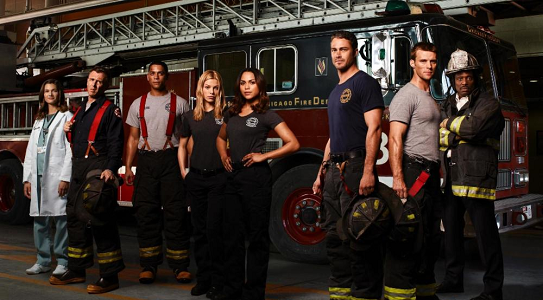
The Burning Question: Why is Chicago Fire Season 14 Facing a Cast Inferno?
Chicago Fire, the flagship of the One Chicago franchise, has long been a reliable source of comforting familiarity. The firehouse, a bustling hub of camaraderie, courage, and weekly emergencies, has become a television institution. We've grown attached to the faces behind the bunker gear, the banter in the locker room, and the heroism on display. However, the stability we've come to expect is currently threatened, as Season 14 is facing what can only be described as a cast turnover inferno. This begs the question: why is Chicago Fire, a show known for its longevity and tight-knit family dynamic, experiencing such significant personnel changes?
One significant factor contributing to this shift is the natural evolution of the show. After thirteen seasons, actors may simply be seeking new challenges and opportunities. Playing the same character for over a decade can be creatively stifling, and the desire to explore different roles, genres, and even platforms is understandable. Actors like Jesse Spencer, who played Captain Matt Casey, made the difficult decision to prioritize family and personal life after years of dedication to the show. This resonates with the cyclical nature of life itself; just as firefighters face retirement or transfers, so too do actors seek new horizons.
Furthermore, the demanding schedule and intense filming conditions inherent to a network procedural drama can take a toll. Chicago Fire, with its elaborate action sequences and unpredictable storylines, requires long hours and physical exertion. For some actors, particularly those with growing families or other personal commitments, the lifestyle may become unsustainable. The relentless pressure to deliver high-quality entertainment week after week can contribute to burnout, leading them to re-evaluate their priorities and seek less demanding roles. This highlights the often-unseen sacrifices made by actors behind the glamour and applause.
Beyond personal reasons, contractual negotiations undoubtedly play a role. As contracts expire, negotiations between actors and the network can stall or fall apart, leading to departures. Actors may seek higher salaries, more creative control, or better working conditions. If these demands cannot be met, both parties may decide to part ways. This underscores the business side of the entertainment industry, where financial realities and strategic considerations often influence creative decisions. The loss of a beloved character can be a painful blow for fans, but it is often the result of complex negotiations behind the scenes.
Moreover, the writers and producers may deliberately introduce cast changes to refresh the show and introduce new storylines. After years of established relationships and character dynamics, the introduction of new personalities can inject fresh energy and perspectives into the firehouse. A new recruit, a seasoned transfer, or even a temporary guest star can disrupt the existing equilibrium, creating new conflicts, alliances, and romantic possibilities. While these changes can be jarring for longtime viewers, they can also be a necessary catalyst for keeping the show engaging and relevant. The introduction of Sylvie Brett's replacement, for example, is sure to bring new challenges and opportunities for the remaining characters.
Finally, the overarching narrative of the One Chicago universe itself can contribute to cast turnover. Characters occasionally cross over to other shows, creating opportunities for actors to explore different roles within the franchise. In some cases, actors may be offered recurring roles on other One Chicago shows, leading them to leave Chicago Fire altogether. This interconnectedness is a unique strength of the franchise, but it can also lead to unexpected departures as characters are woven into different storylines across the three shows.
In conclusion, the significant cast turnover facing Chicago Fire Season 14 is a complex issue with no single, definitive answer. It is a confluence of factors, ranging from personal decisions and contractual negotiations to creative choices and the inherent demands of the television industry. While the departure of beloved characters can be disheartening for fans, it also presents an opportunity for the show to evolve, introduce new perspectives, and continue to tell compelling stories of heroism, sacrifice, and the enduring bonds forged in the face of adversity. The firehouse may look a little different, but the flames of dedication and the spirit of Chicago Fire are sure to burn on.
